At breakfast in the drop dead gorgeous Georgian Room at Seattle’s Fairmont Olympic Hotel, guests hold out a knife to catch naturally sweet drips straight from the honeycomb displayed on a buffet table to spread on their toast. And as the word spreads about the hotel’s rooftop hives, most diners are aware that this tasty honey is as local as local can get.
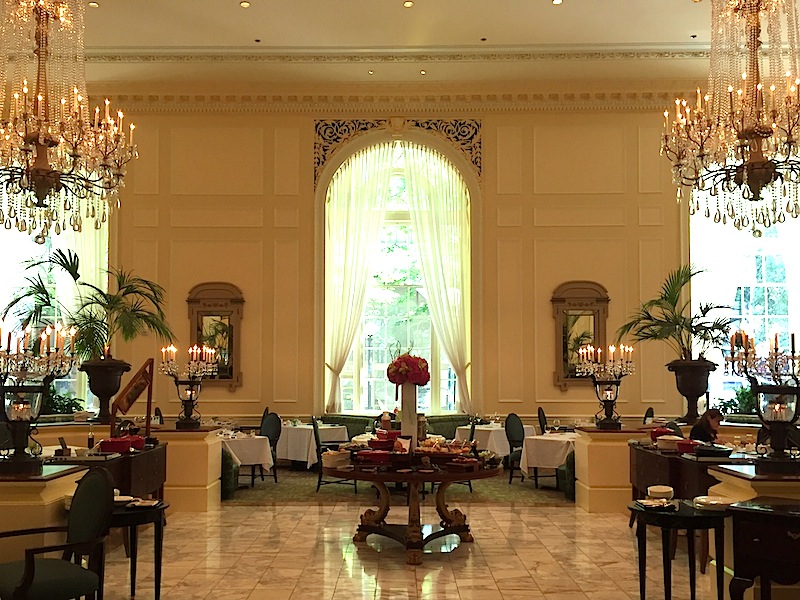
Some 500,000 honeybees are the unlikely — but most welcome — guests of this elegant Italian Renaissance-style historic downtown landmark. What began in 2011 with just five hives has become a highly successful project in sustainability.
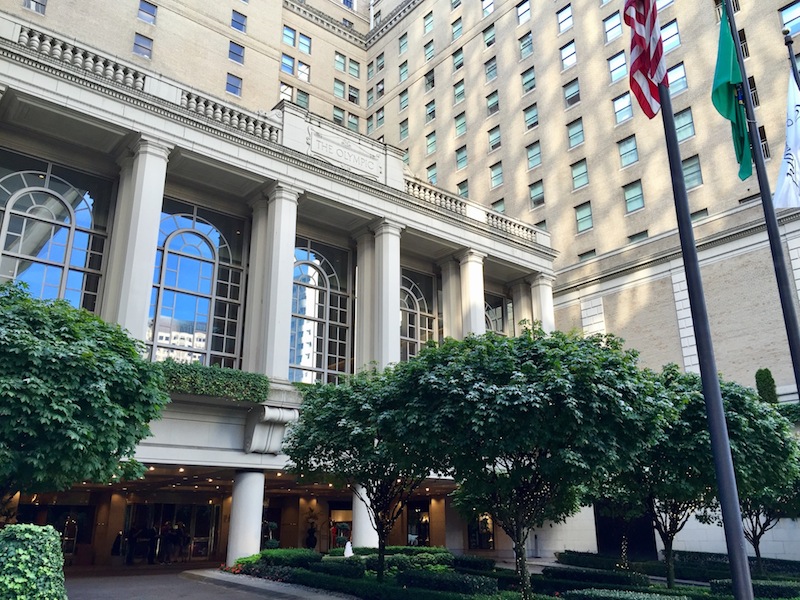
In addition to maintaining 15 rooftop hives, in 2016 the property built a pollinator “hotel.” Since it’s not always easy for wild honeybees to find a nice place to nest, rest their wings, and stay overnight in the big city, they’re welcome to check in here.
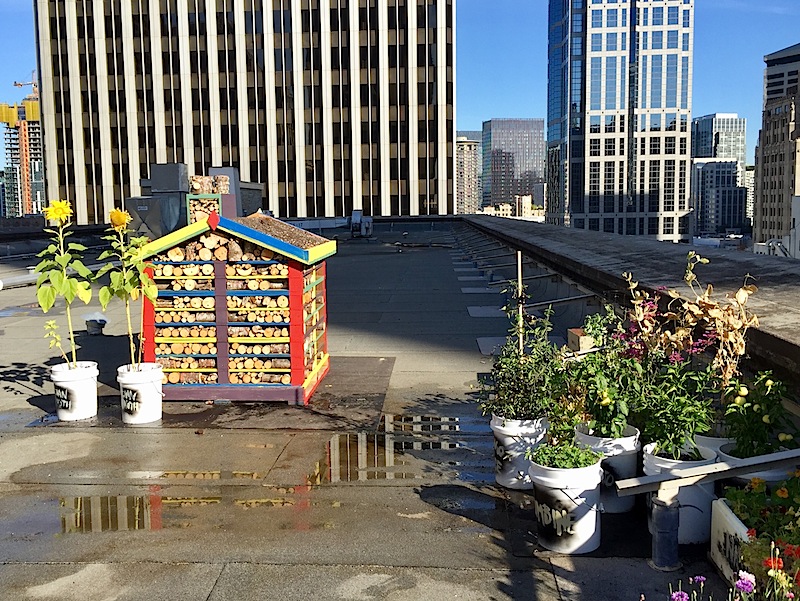
Among urban luxury hotels, Fairmont is a leader around the buzzy and urgent topic of decline in pollinator bees and Colony Collapse Disorder among honey bees, with 20 of their hotels around the world providing hives and habitat.
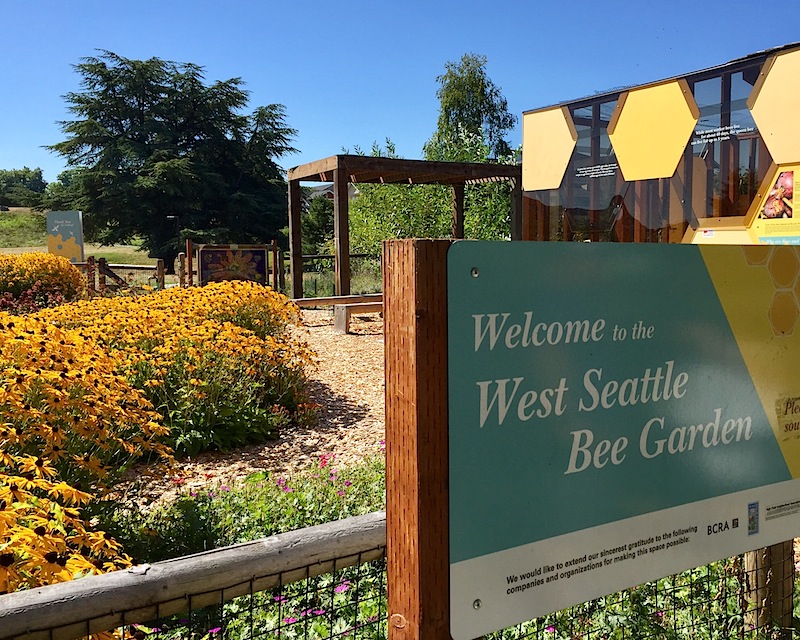
Because field bees can travel as many as six miles a day, they check in and out of their urban rooftop apiary all day, helping the local environment by pollinating blossoms in gardens and parks. Urban honey flavor can be quite interesting and complex, as well as unpredictable, as the bees can bring back an array of different nectars from their wide travels.
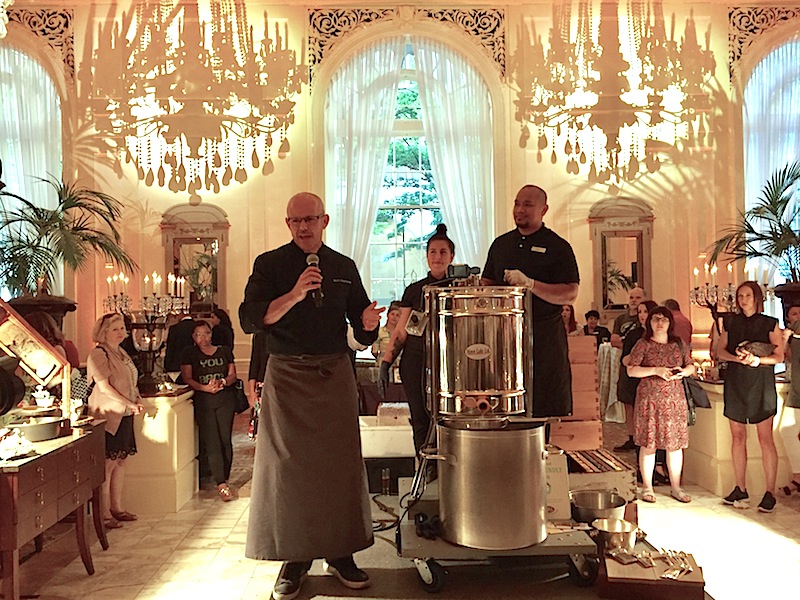
Facts and figures about the bee community and their incredibly important roles in the food chain are astounding. Honeybees visit two million flowers to make one pound of honey; field bees visit 50 to 100 flowers during each trip; queen bees can lay up to 2,000 eggs a day; wild bees are three times as productive at pollination when compared to other pollinators. At the Fairmont Olympic, as many as 600 pounds of honey are produced every year.
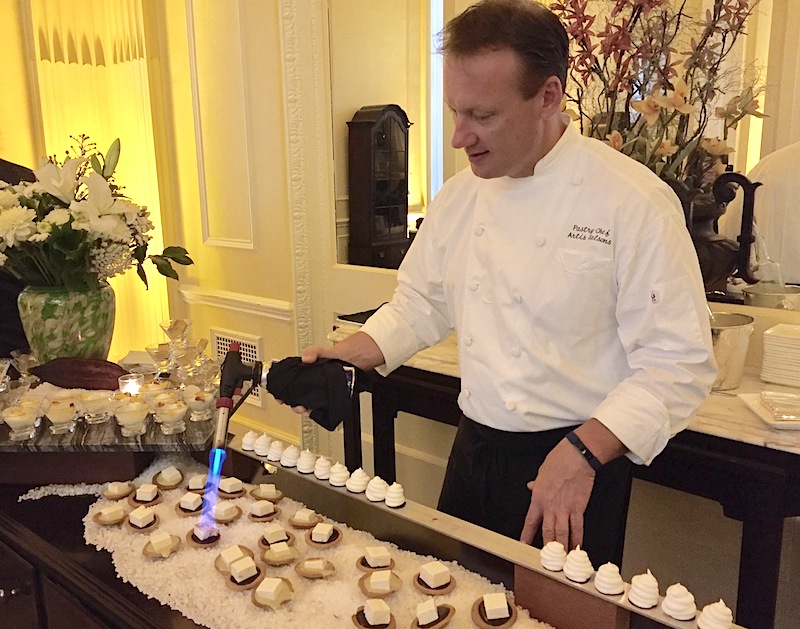
As a bonus, chefs are learning about beekeeping while harvesting the honey to create original honey-centric cocktails, beer, and dishes in onsite bars and restaurants. As well as being used in the hotel kitchen, the Fairmont Olympic honey is gifted to overnight guests.
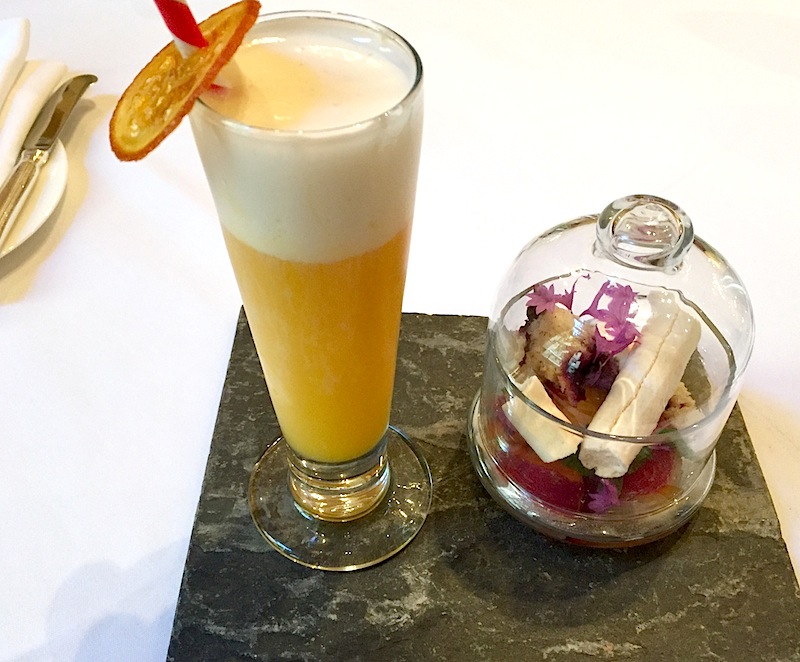
Further options found on the Honey Bee Breakfast menu may include honey whipped yogurt with berries and granola, a honey cranberry muffin and fresh, foamy honey tangerine juice, glazed bacon for a special treat.
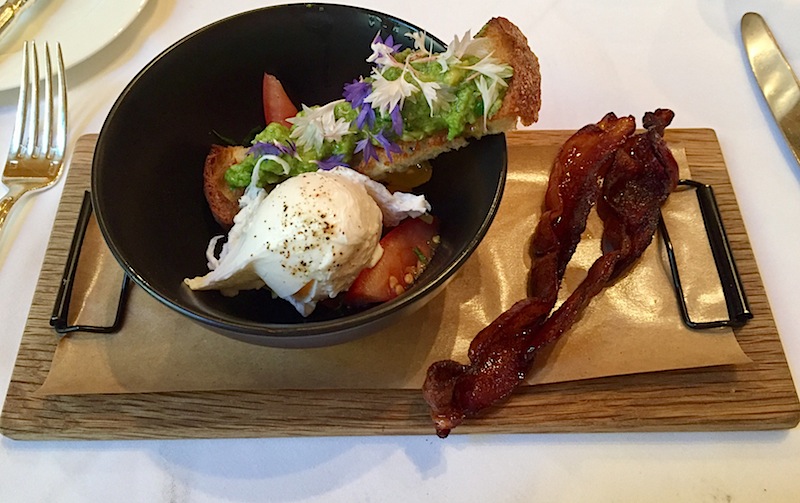
Hyper-local collaborations have been formed between the hotel and talented craftspeople like the family-owned Pike Brewing Company, founded in 1989 by craft beer pioneers, Charles and Rose Ann Finkel.
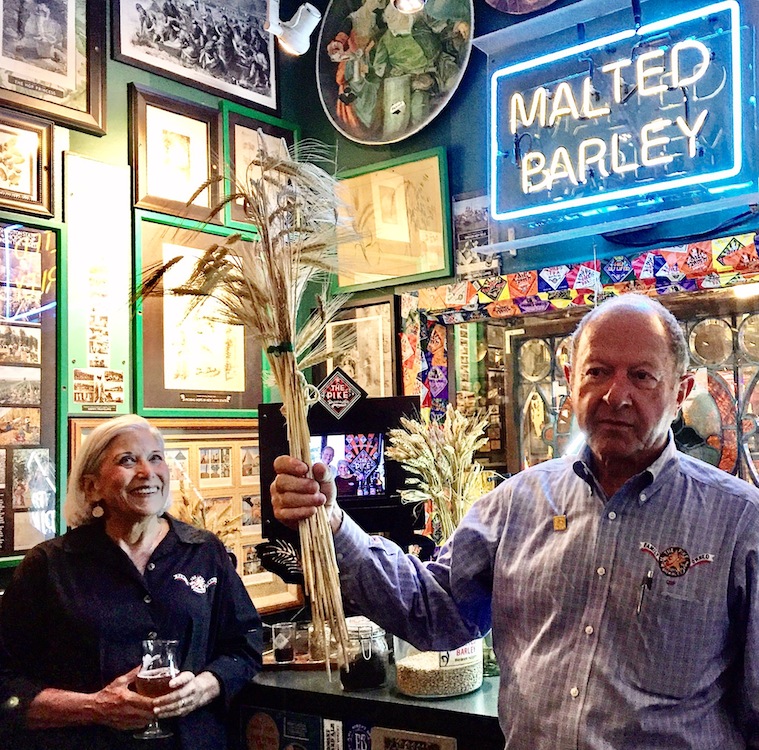
Their Pike Honeymoon Suite is a popular Yakima Valley hopped ale using the superb rooftop honey for a light golden pour that’s available exclusively at the Fairmont Olympic Hotel. Curious? Stop in at the brand’s underground pub or book a free tour of the manual operation brewery next door to Pike Place Market to see how it’s done.
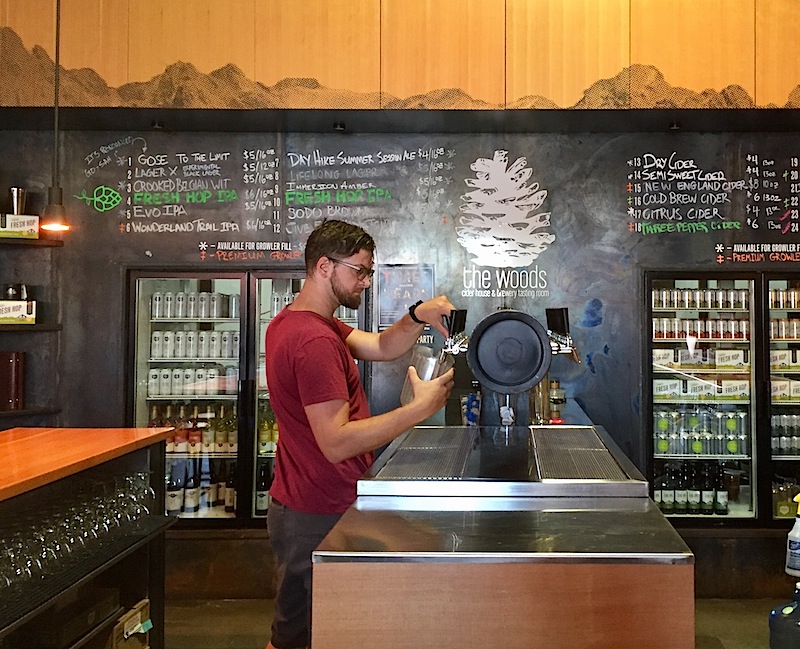
Out in the SoDo neighborhood, Seattle Cider Company makes Olympic Honey hard cider, a seasonal semi-sweet and full-bodied brew with nuanced notes of honey on the nose and finish. At Seattle’s first cidery since Prohibition, magic is happening with Washington State apples. It’s served on-site at The Woods tasting room, where 24 taps are shared with Two Beers Brewing and at Shucker’s and The Terrace Lounge at the Fairmont Olympic Hotel.
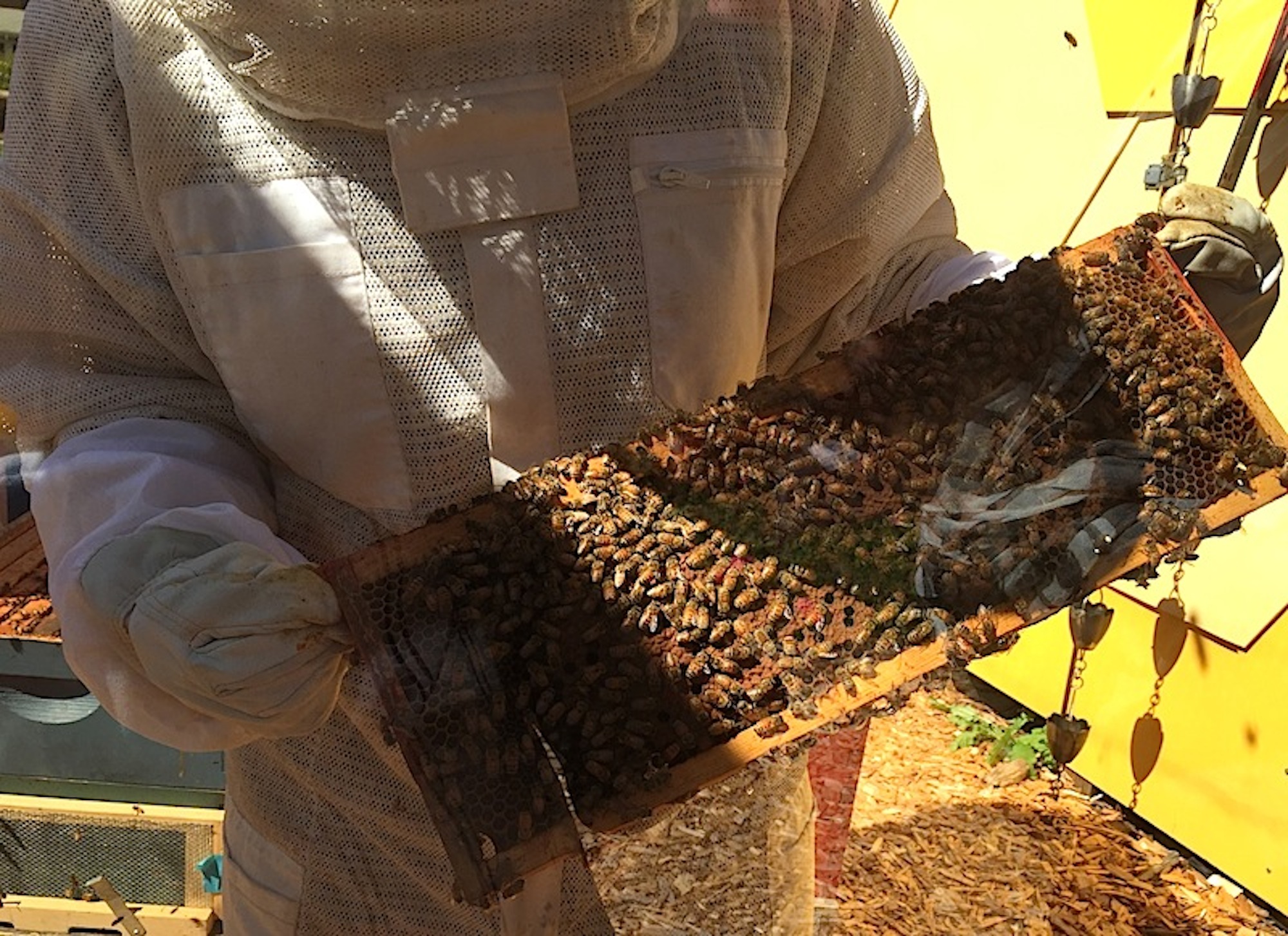
Note: I was a guest of the hotel for the annual Bee Olympic Honey Extraction event. Opinions expressed are entirely my own; I received no payment from Fairmont Hotels.
A career-long tourism, destination, hotel sales and marketing pro, Laurie Jo Miller Farr is a dedicated urbanite who loves walkable cities and has a knack for always finding the best public restrooms. As a San Francisco-based travel and copywriter, she enjoys views from its crazy signature hills following half-a-lifetime promoting her dual hometowns, a couple of oh-so-flat places: NYC and London. Her work is found online at USA Today, Yahoo, Eater, CBS, Where Traveler, and more. She tweets @ReferencePlease and posts on Instagram @lauriejmfarr.








